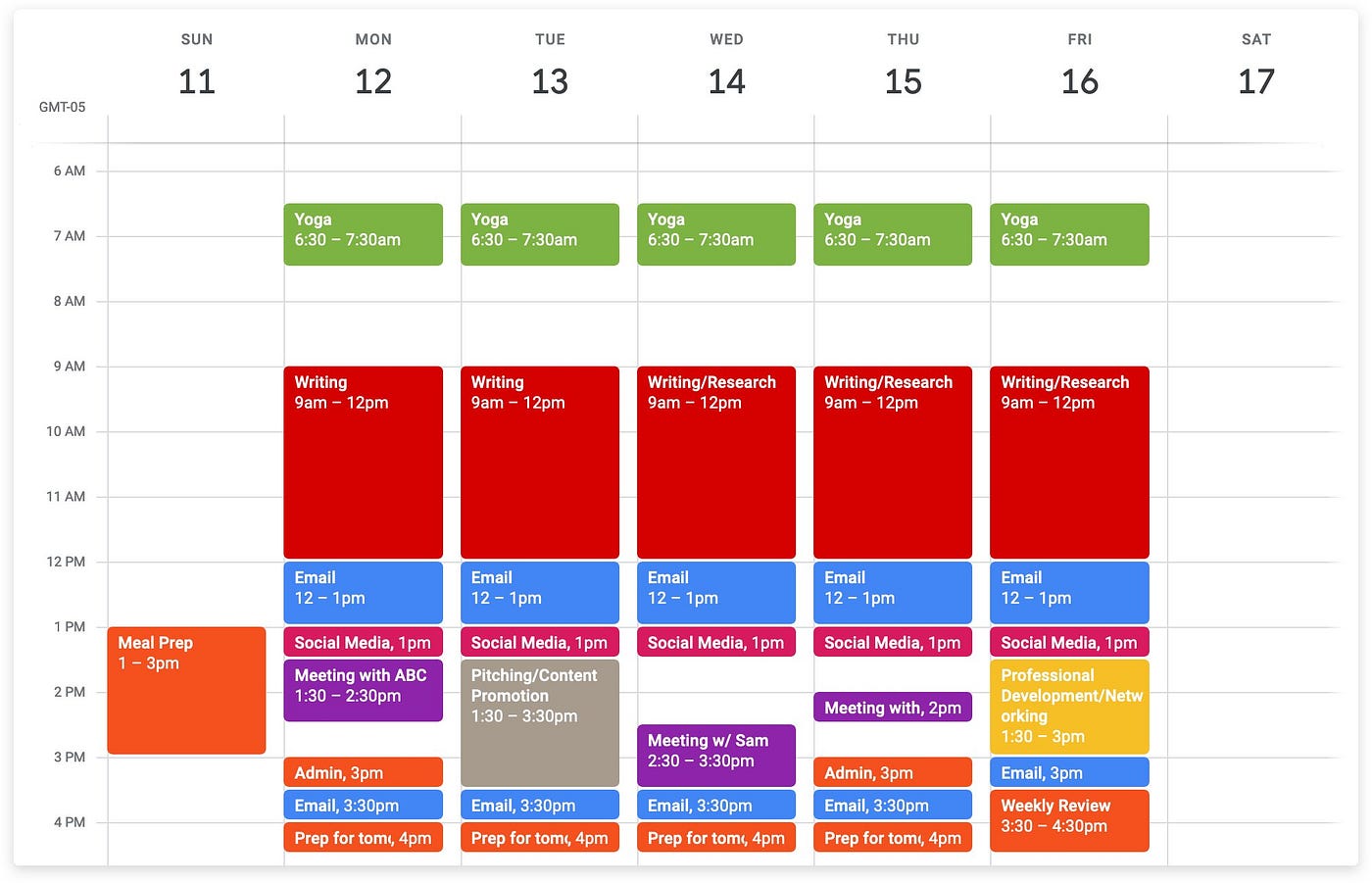By Colby Kultgen
How to Unrot Your Brain, A Genius Sales Tip, and What's The Point of It All
Read online / Read time: 4 minutes
Today at a Glance:
• Article: How to unrot your brain
• Quote: The danger of distraction
• Video: What's the point of it all?
• Tip: A genius sales tactic
• Funny: 🦜🗣️
|
An article about "unrotting" your brain
Brain rot.
It's simultaneously the funniest and most tragic term to make its way into the cultural lexicon lately.
We like to make jokes, but deep down we all feel it.
That dull, restless sense that we’re not as sharp as we used to be.
That our attention spans and memories are degrading with every 10-second TikTok video we watch.
This fantastic piece on Substack takes a tactical approach to “unrotting” your brain and getting back to the curious, engaged version of yourself.
Here's are the first 4 steps they lay out:
1. It really is that damn phone
Step away from the infinite scroll and give your brain a second to remember how to think without being spoon-fed. Not in a dramatic, I'm-quitting-social-media-forever way. Just pause. Let your dopamine system stop firing like a broken vending machine and your prefrontal cortex to actually breathe. And while you're at it: stop asking ChatGPT every little thing. You already know more than you think. Sit in the question a little longer. You need your own thoughts. Three days. Take three days to sit with the itch to check your phone every 5 minutes, and instead embrace your own thoughts. Let it remember how to generate its own ideas.
2. let yourself be bored
You don’t need to be entertained every second. In fact, you shouldn’t be. Remember when you could stare out the car/train/plane window for the entirity of a long trip? Let yourself sit in silence. No phone. No music. No stimulation. Just 10 or 15 minutes of mental stillness a day. Stare out a window. Stare at the ceiling. Sit with the buzz of discomfort. It’s not about being bored—it’s about giving your brain the space to recalibrate. Try the Navy SEAL nap if you need structure: lie on the floor, feet up on the couch, 20 minutes max. It’s not lazy. It’s neurological recovery.
3. write like your brain depends on it
Because it kind of does. Just start writing. Use your notes app. Open a doc. A scrap paper. Spill thoughts. Follow tangents. Let yourself ramble. Write something ugly and tangled and undeveloped. Not to produce or sound intelligent, but it’s to hear yourself again. To track the way your mind moves. To think your own thoughts without structure or pressure or input. You write to find out what you think. To watch your brain unfold in real time, without a filter.
4. learn something that fascinates you
Pick a topic, anything. Become obsessed. Not to be graded or read. Not to get ahead. Just for the thrill of it. Write a thesis, do the research, produce the paper. Watch lectures. Take notes. Make PowerPoints no one will ever see. Make homework for yourself, like you used to. Give yourself a deadline in one month, three, or five. “By August 15, I will finish a mini paper on X.” Educate yourself on something of interest and passion the old school way. You need fascination, the kind that doesn’t serve anyone but you.
You can read the rest of the steps in the full piece linked above.
A quote that's living rent free in my head
“If a large diamond is cut up into pieces, it immediately loses its value as a whole; or if an army is scattered or divided into small bodies, it loses all its power; and in the same way a great intellect has no more power than an ordinary one as soon as it is interrupted, disturbed, distracted, or diverted.”
If you skipped over the article above, this quote sums up the sentiment nicely.
The crazy thing is that this was originally published in 1851!
Schopenhauer thought newspapers were overstimulating, imagine him with an iPhone.
A bit of unexpected wisdom from the world's #1 golfer
|
7:32 AM • Jul 15, 2025
5579 |
Retweets |
46641 |
Likes |
|
|
A friend sent me this video last week, and I knew immediately I had to share it.
Fresh off winning the Open Championship, world #1 golfer Scottie Scheffler gave a surprising answer to the question:
“What’s the point of it all?”
You’d expect the usual soundbite about legacy or greatness, but instead, he went in a completely different direction:
“This is not a fulfilling life. It’s fulfilling from the sense of accomplishment, but it’s not fulfilling from a sense of the deepest places of your heart.”
I think there are a few key lessons we can take from this:
1. The diminishing returns of external success
Scheffler admitted that winning feels incredible, but only for a moment. “It’s one of the greatest joys of my life, but does it fill the deepest wants and desires of my heart? Absolutely not,” he said.
2. Deep fulfillment comes from serving something outside yourself
He spoke openly about how faith and family ground him. Golf is important, but he made it clear that if success ever pulled him away from his wife and son in a way that truly conflicted with his values, he’d walk away.
3. It takes courage to question the “always more” mentality
Scheffler’s perspective is rare. He’s not waiting until some personal crisis or the end of his career to figure this out. He already knows what matters most.
Let me know if this resonated with you.
A genius sales lesson from an 8-year-old
I saw this note on Substack (yes, I'm really into Substack right now), and I thought it was genius:
I saw an 8-year-old sells rocks in my neighbourhood.
Not just rocks. “Special rocks with stories,” she says. A dollar each.
Yesterday, she sold me a gray one. “It used to be part of a mountain but decided to see the world.”
I happily gave her five dollars.
Because she taught me:
We don’t buy products. We buy meaning. We buy a piece of ourselves reflected in a story.
Takeaway: The power of story is undefeated.
😂
Reply telling me what resonated most!
(I read and respond to them all)


